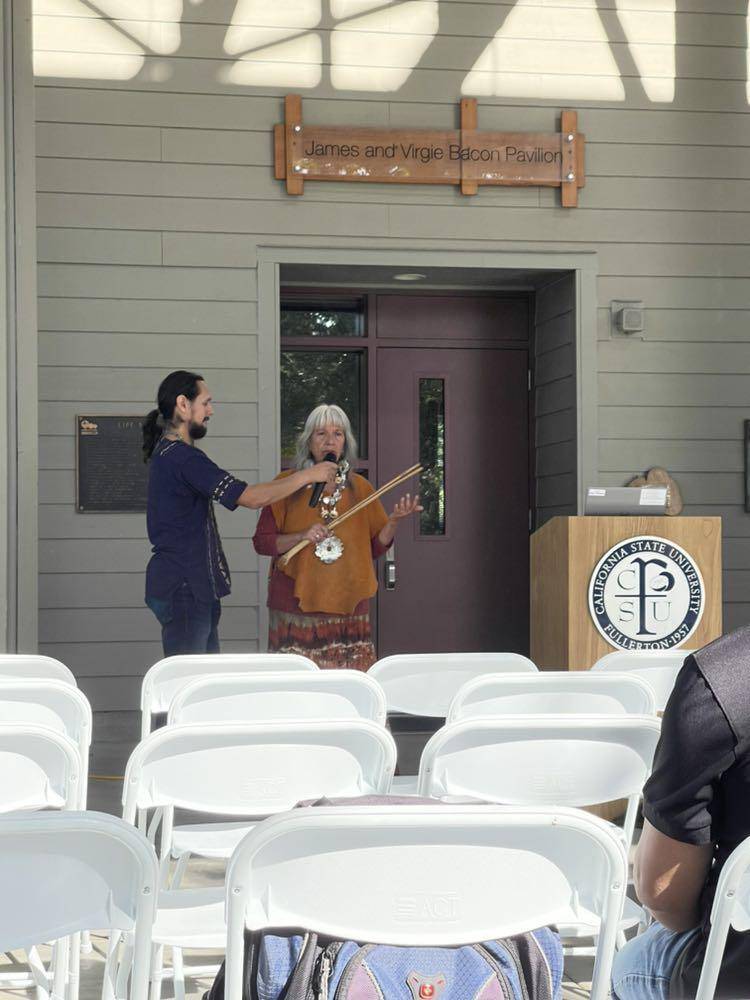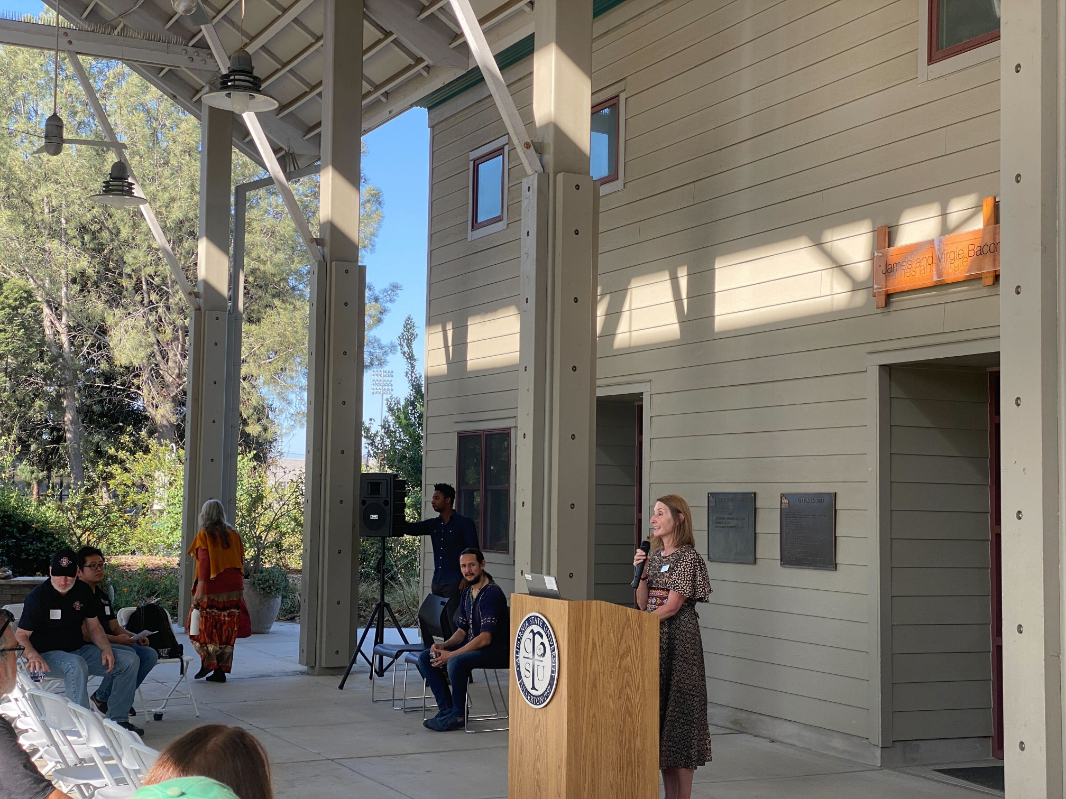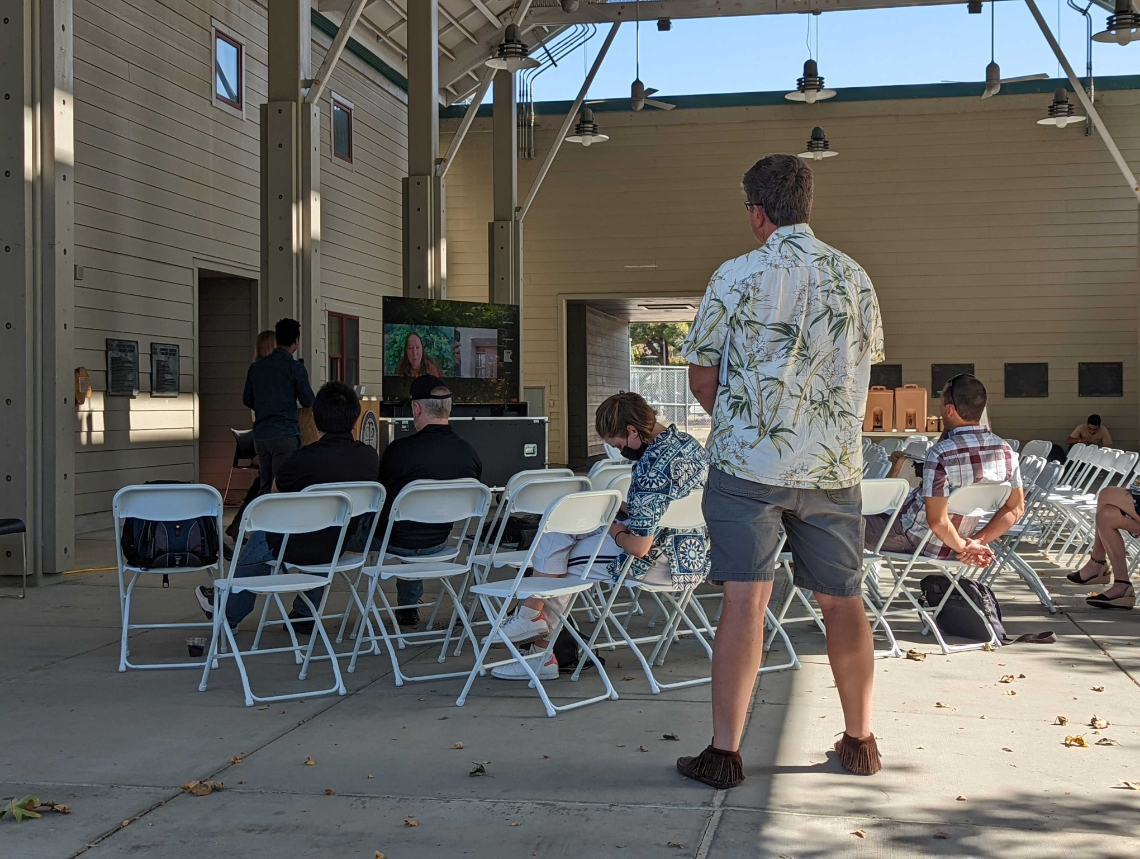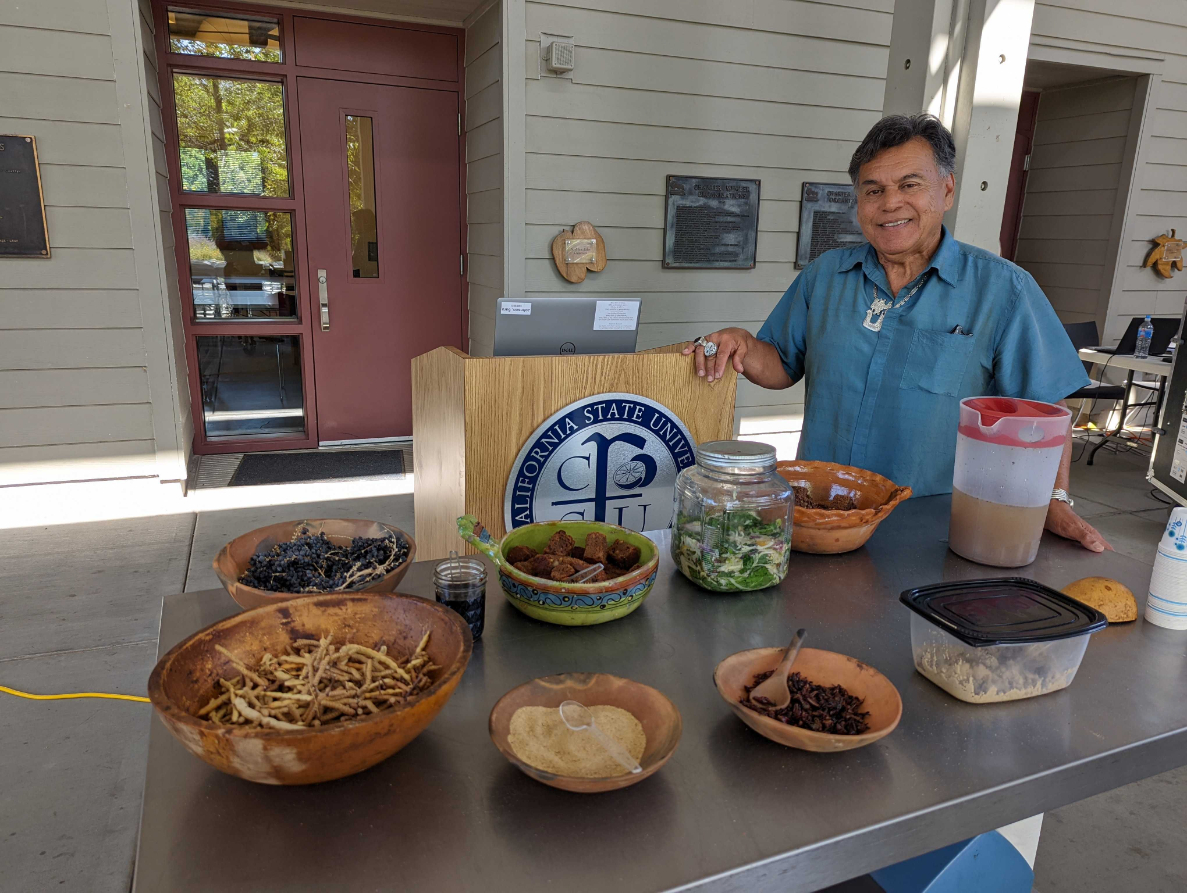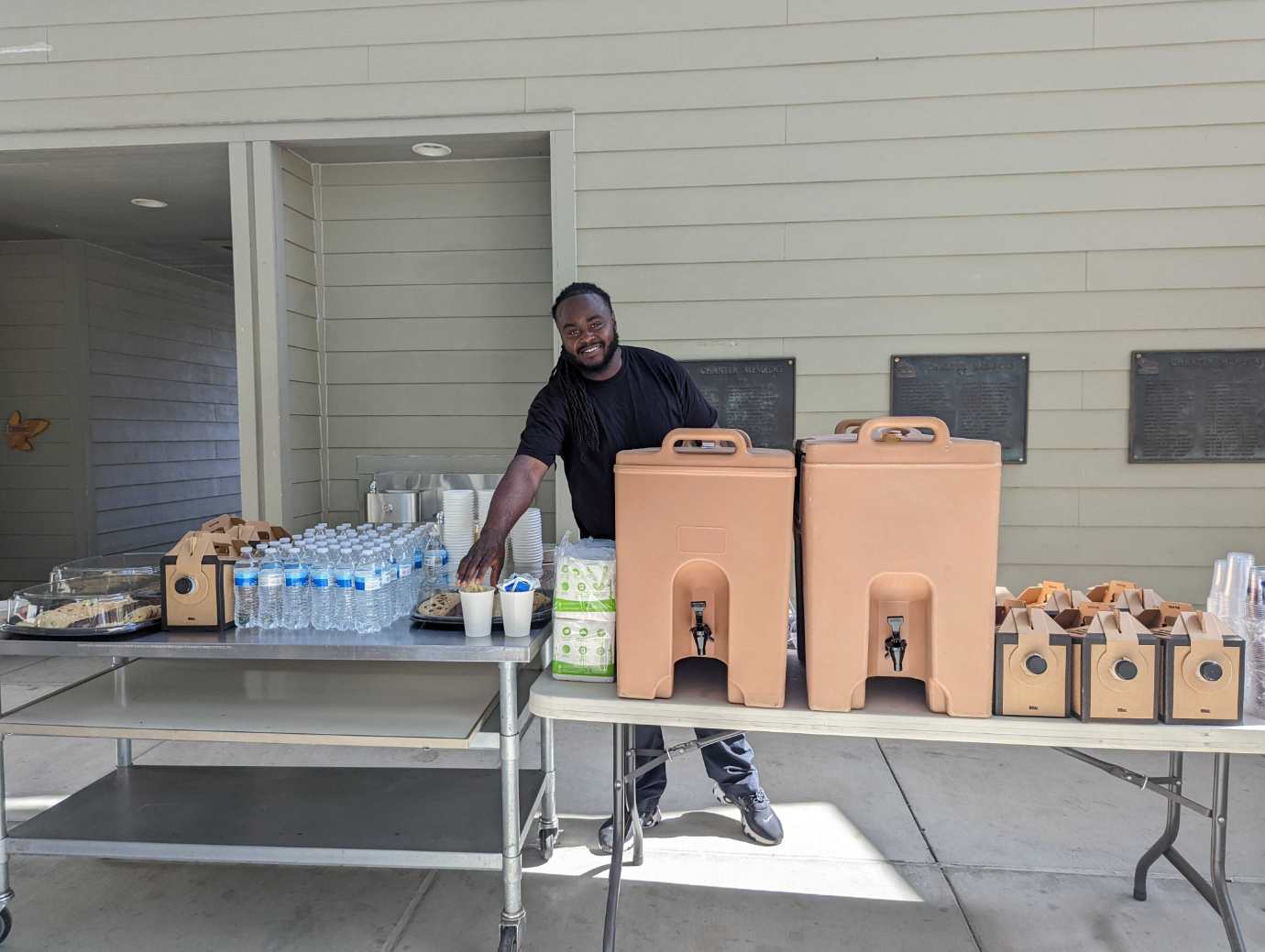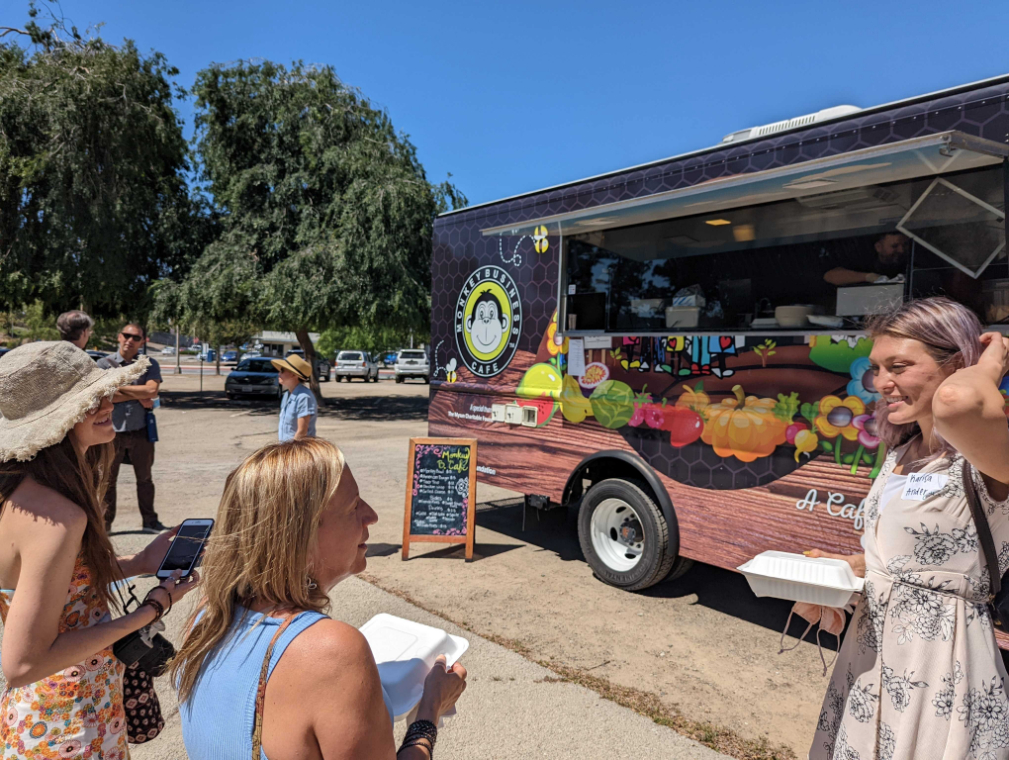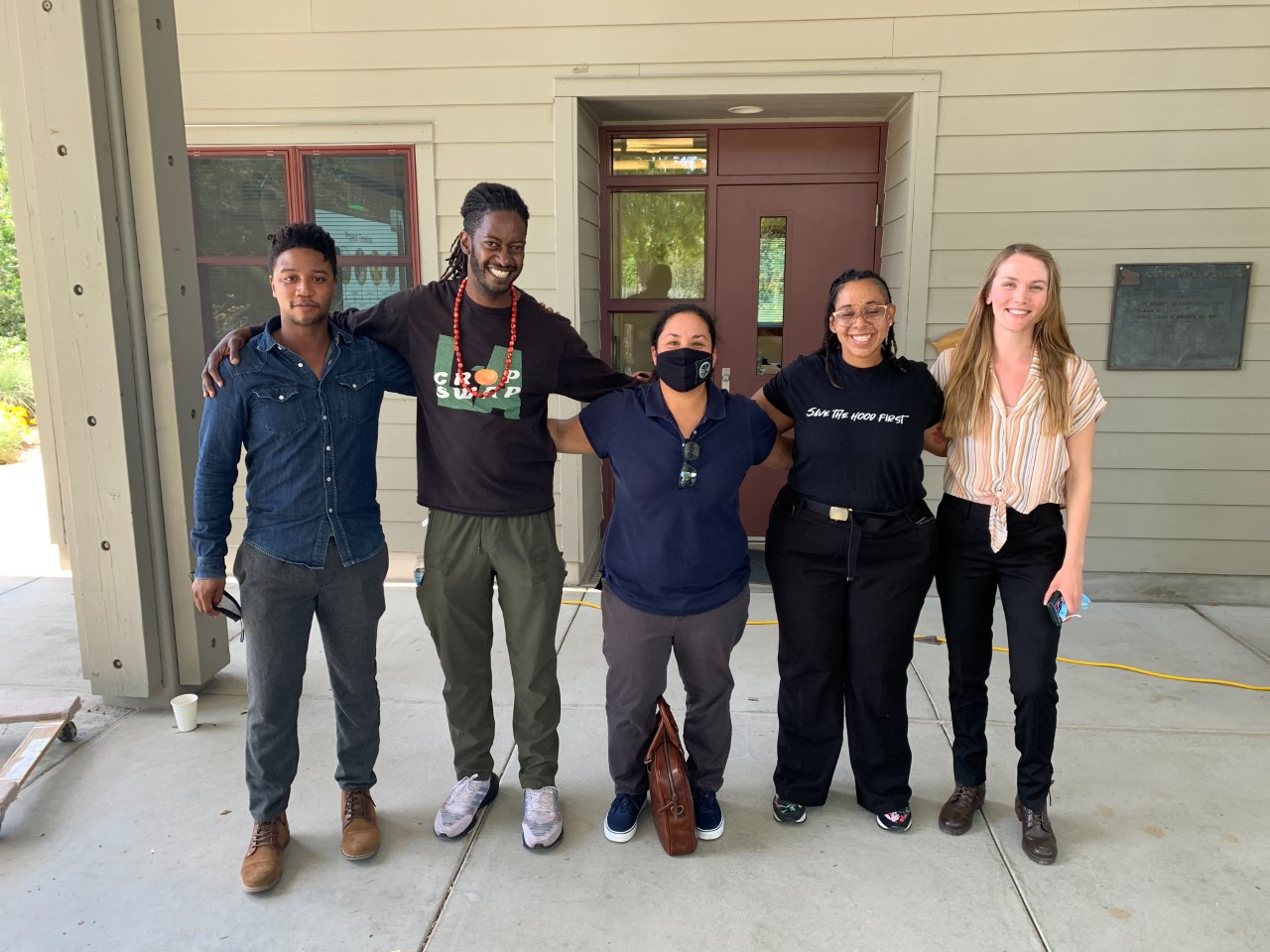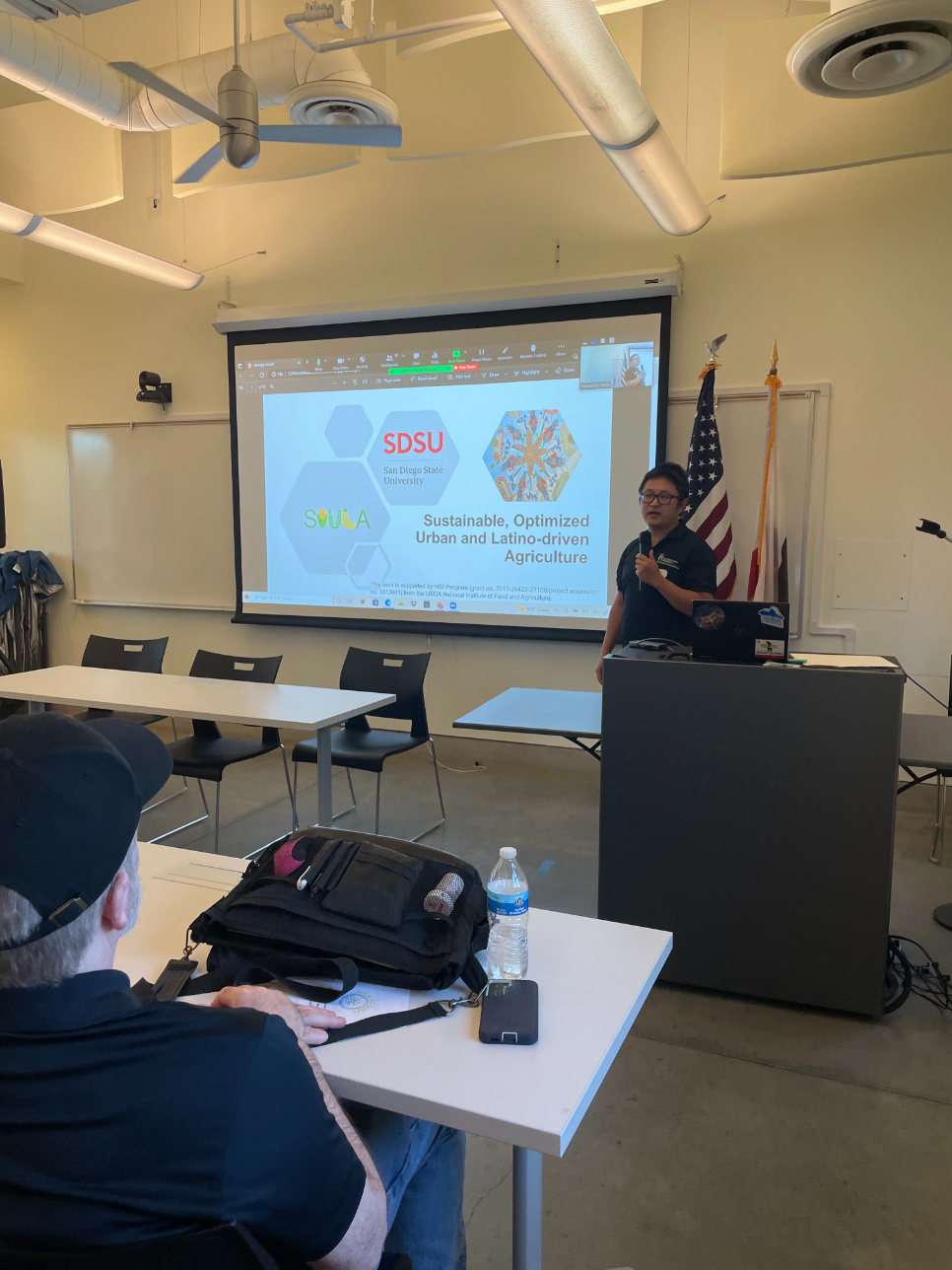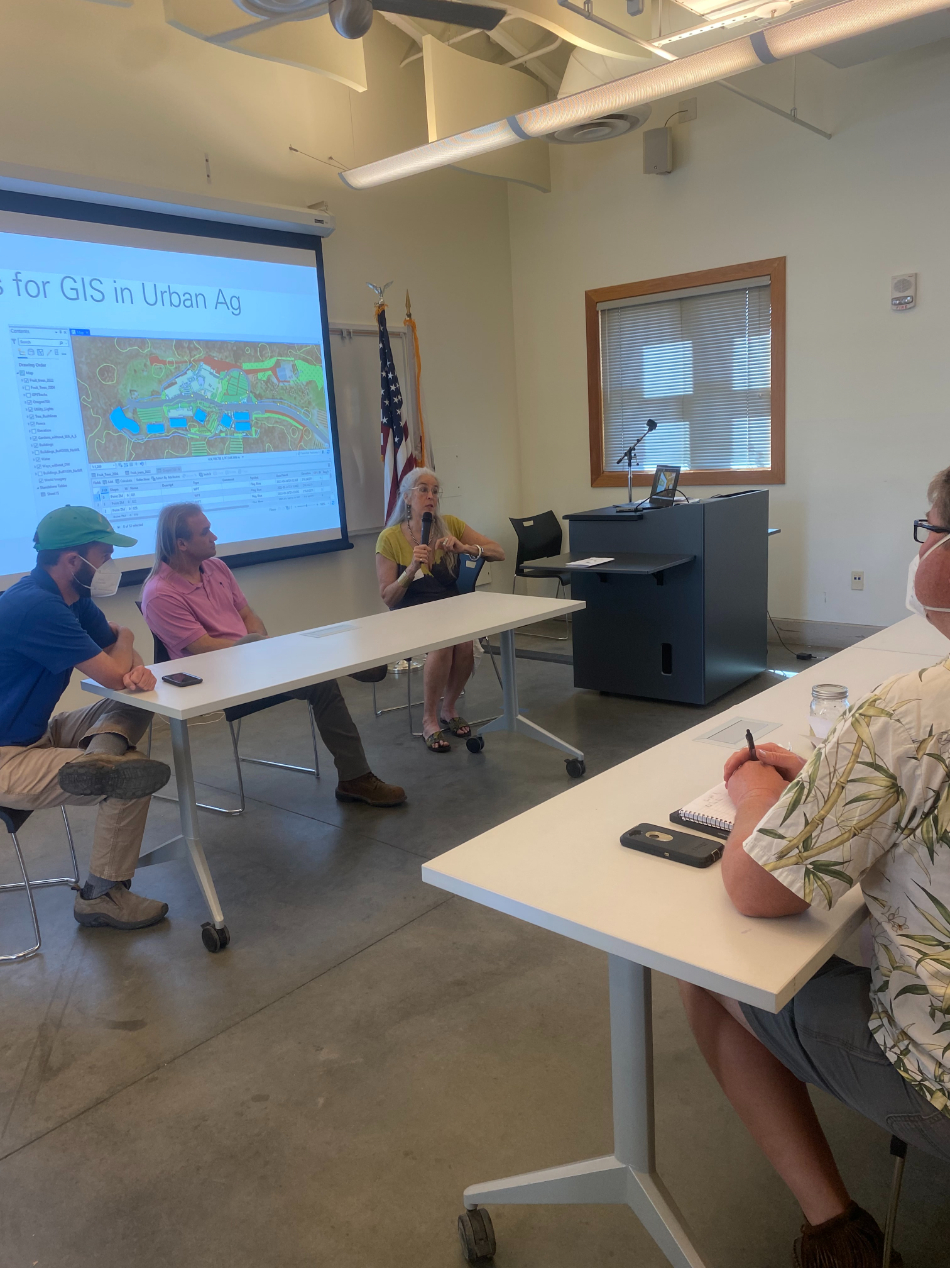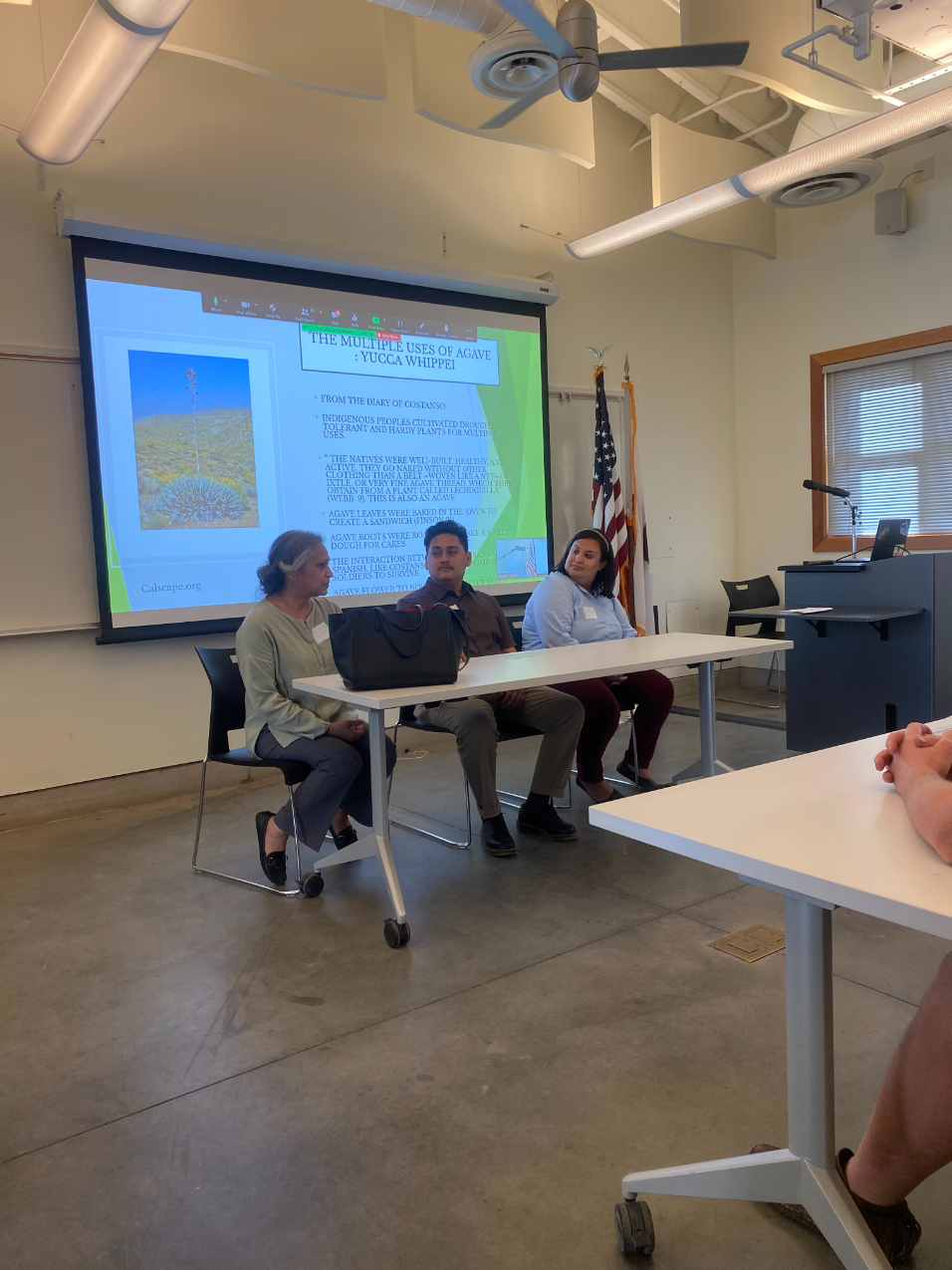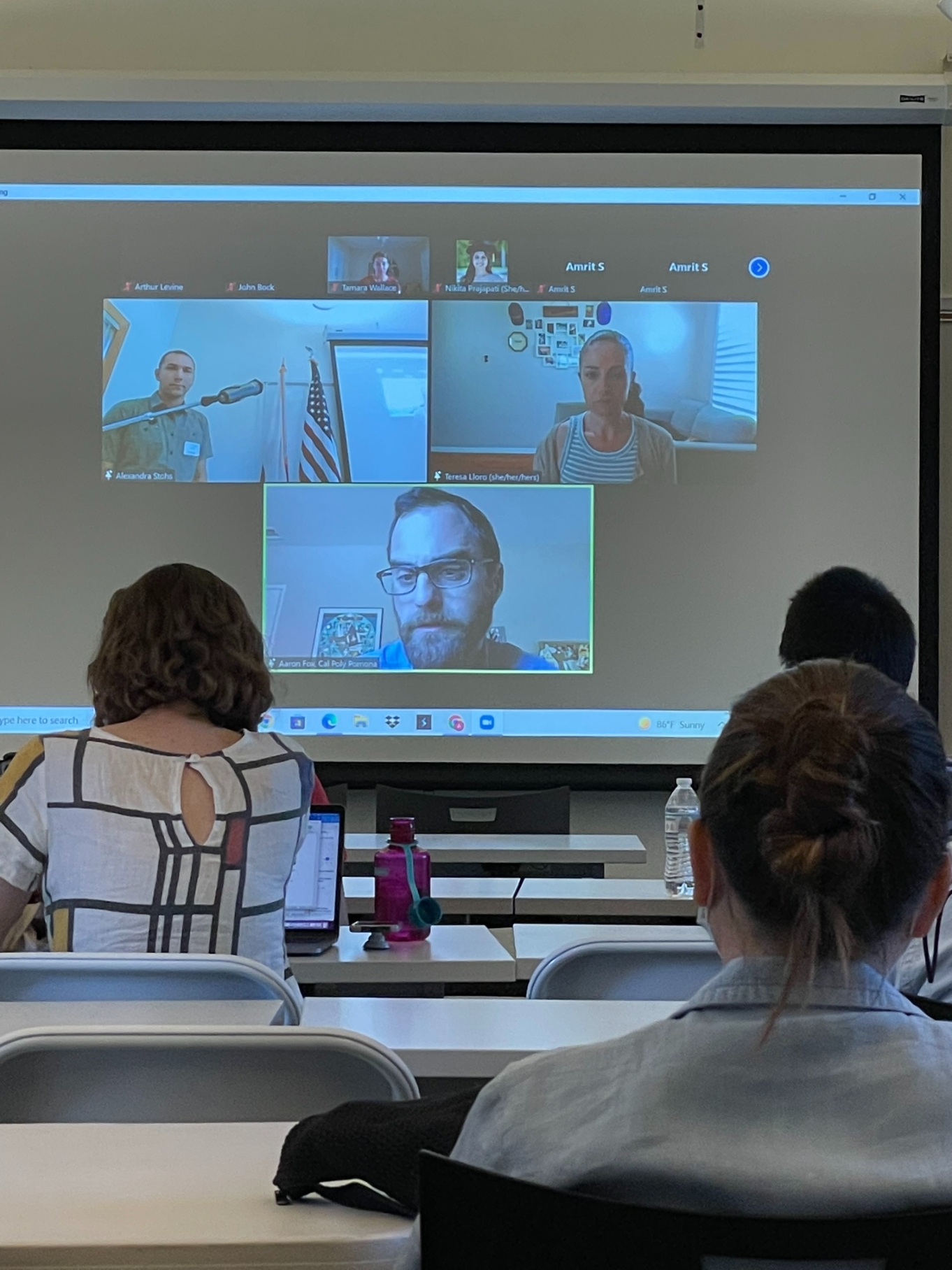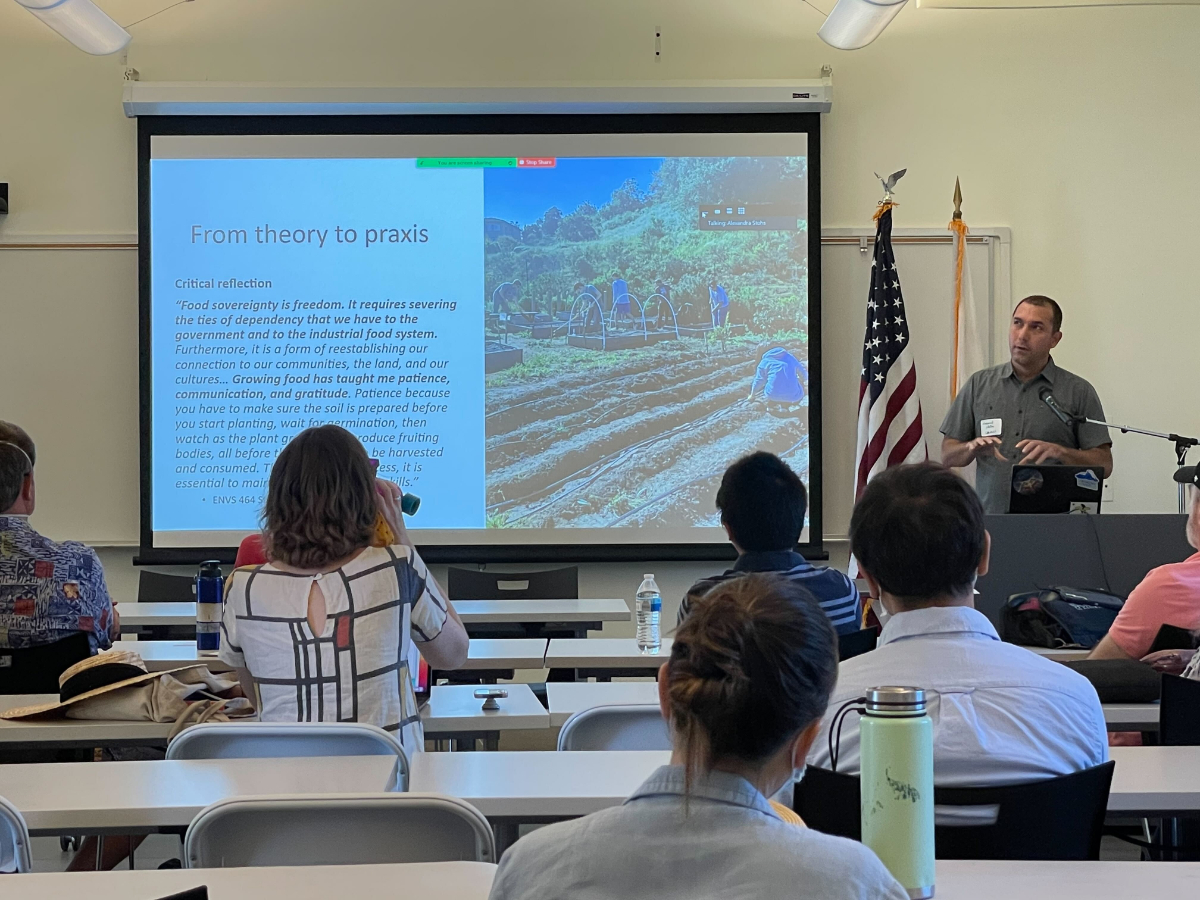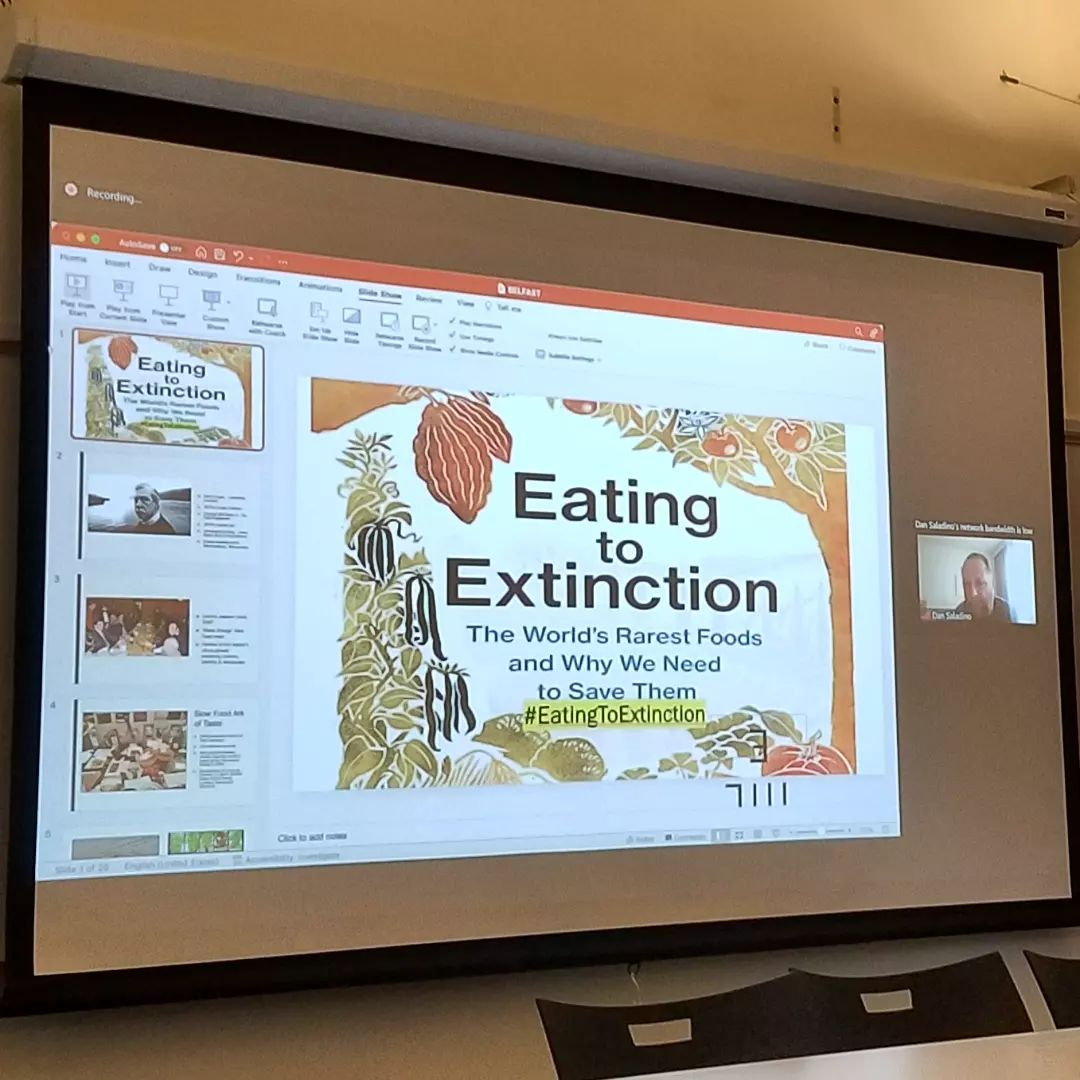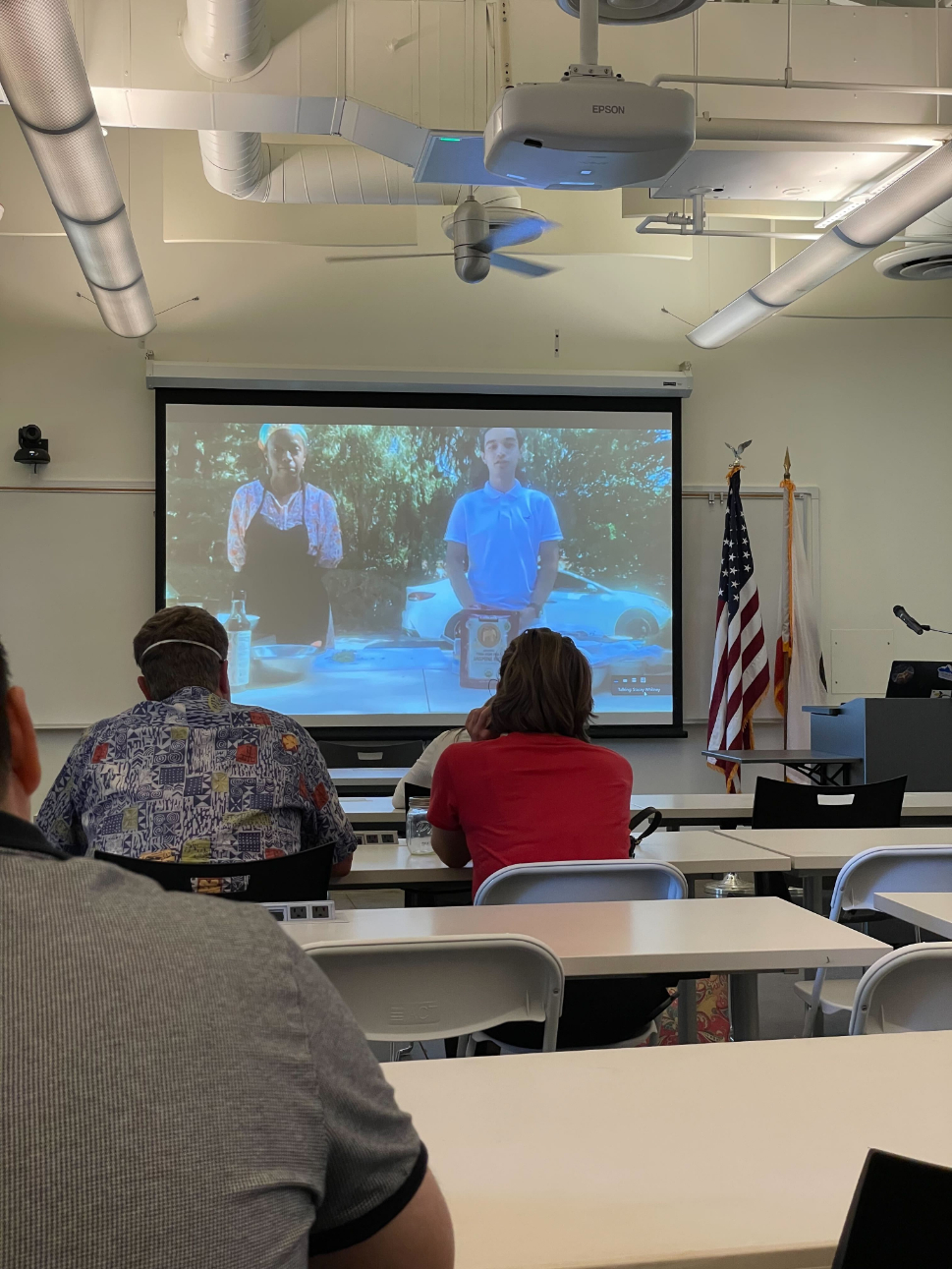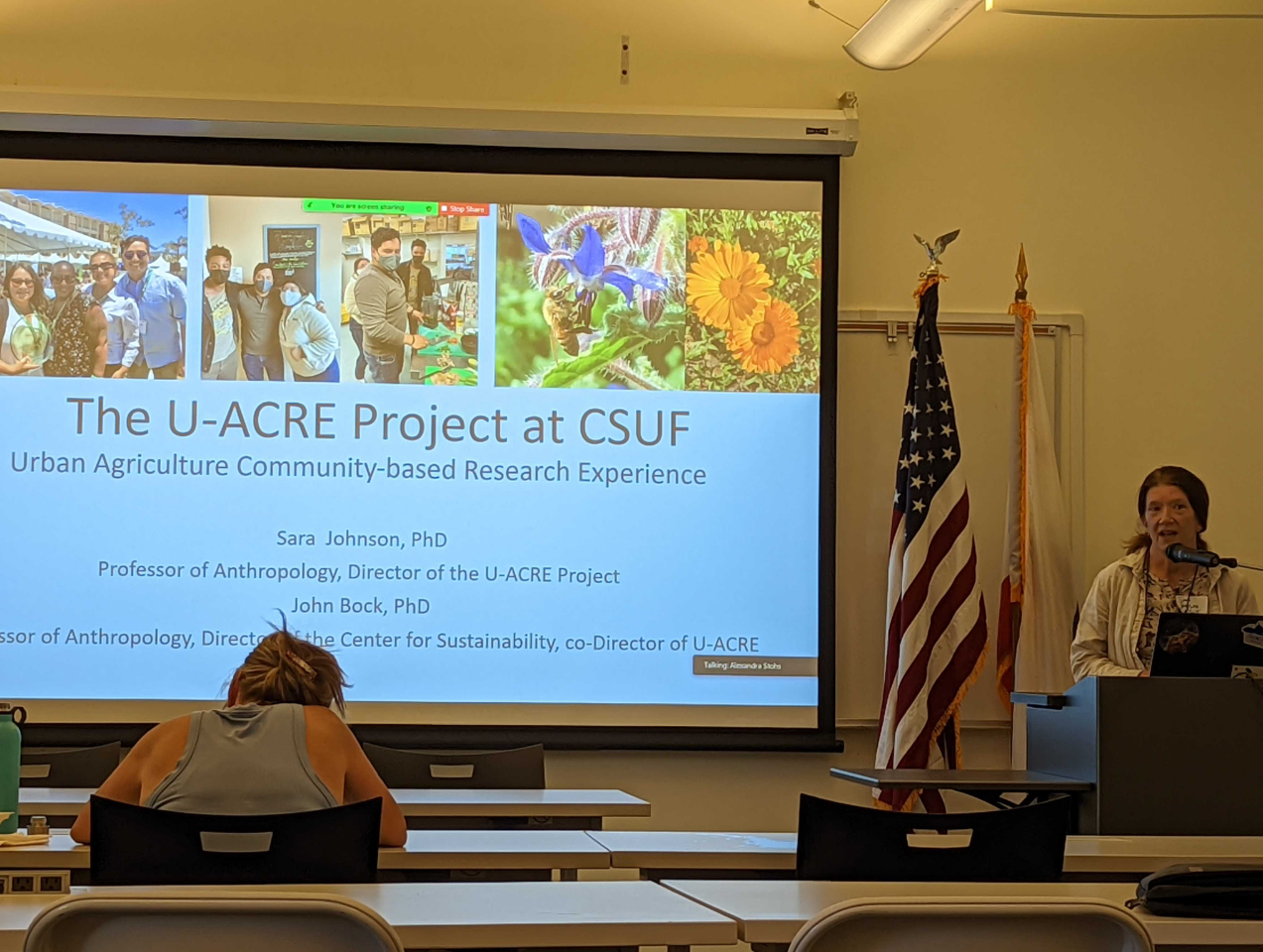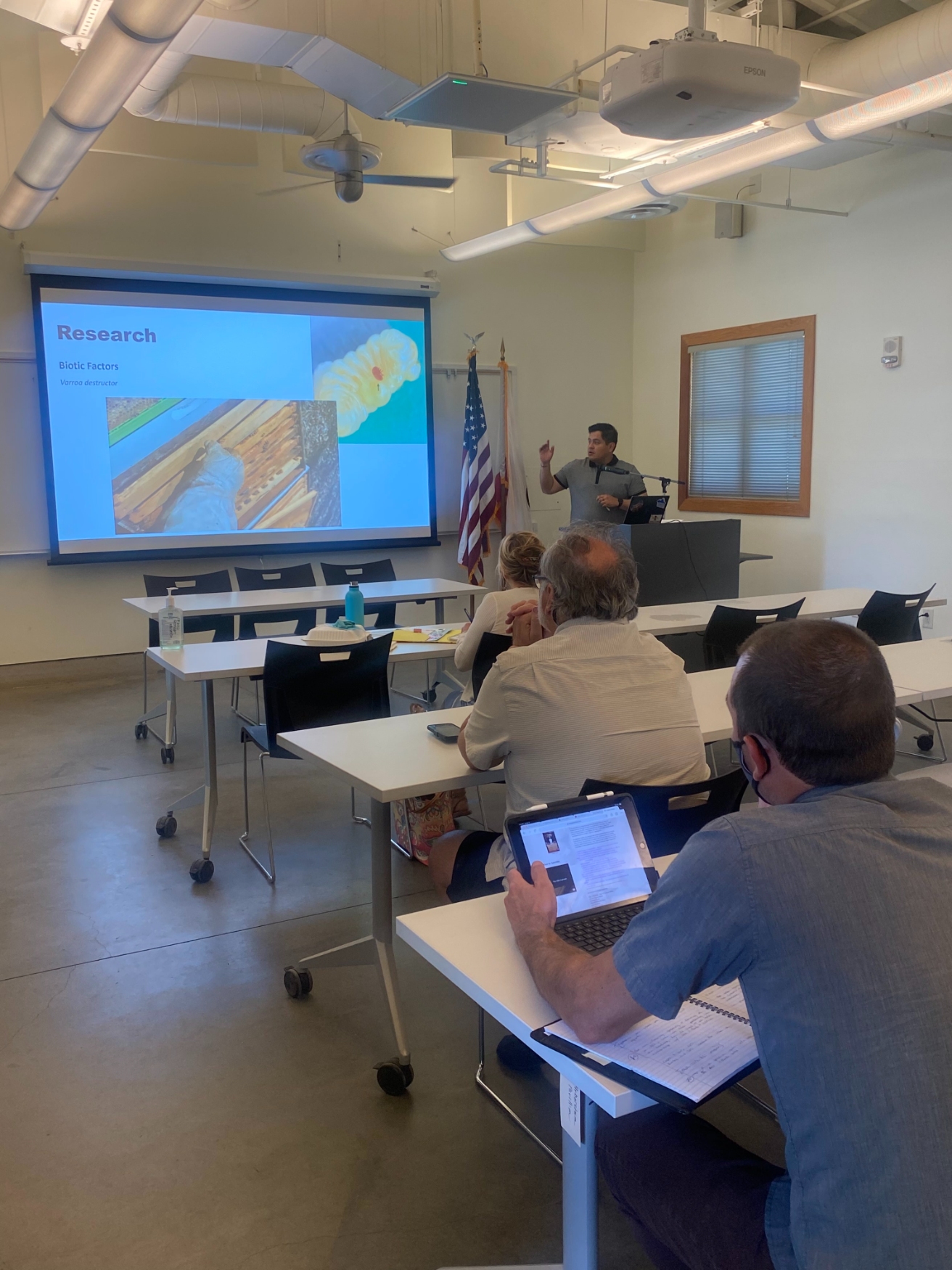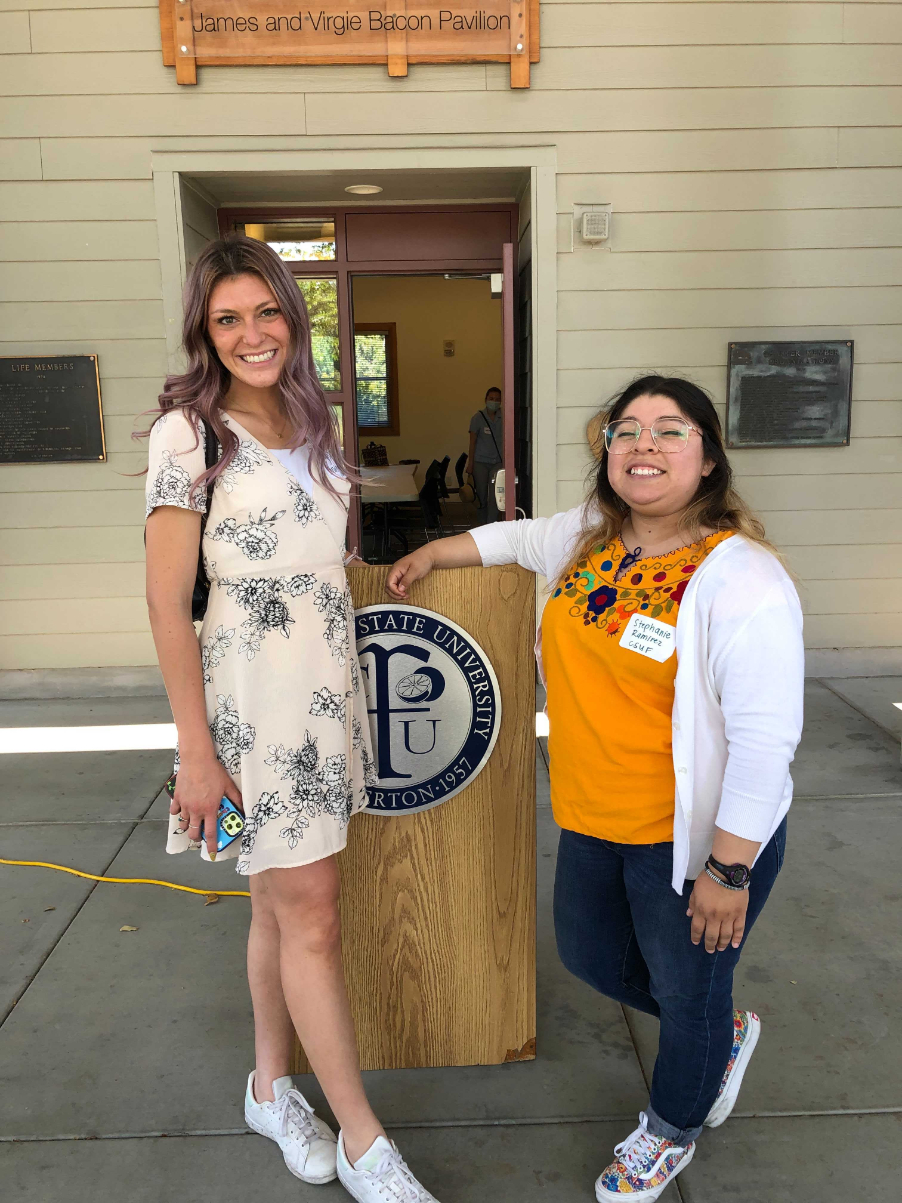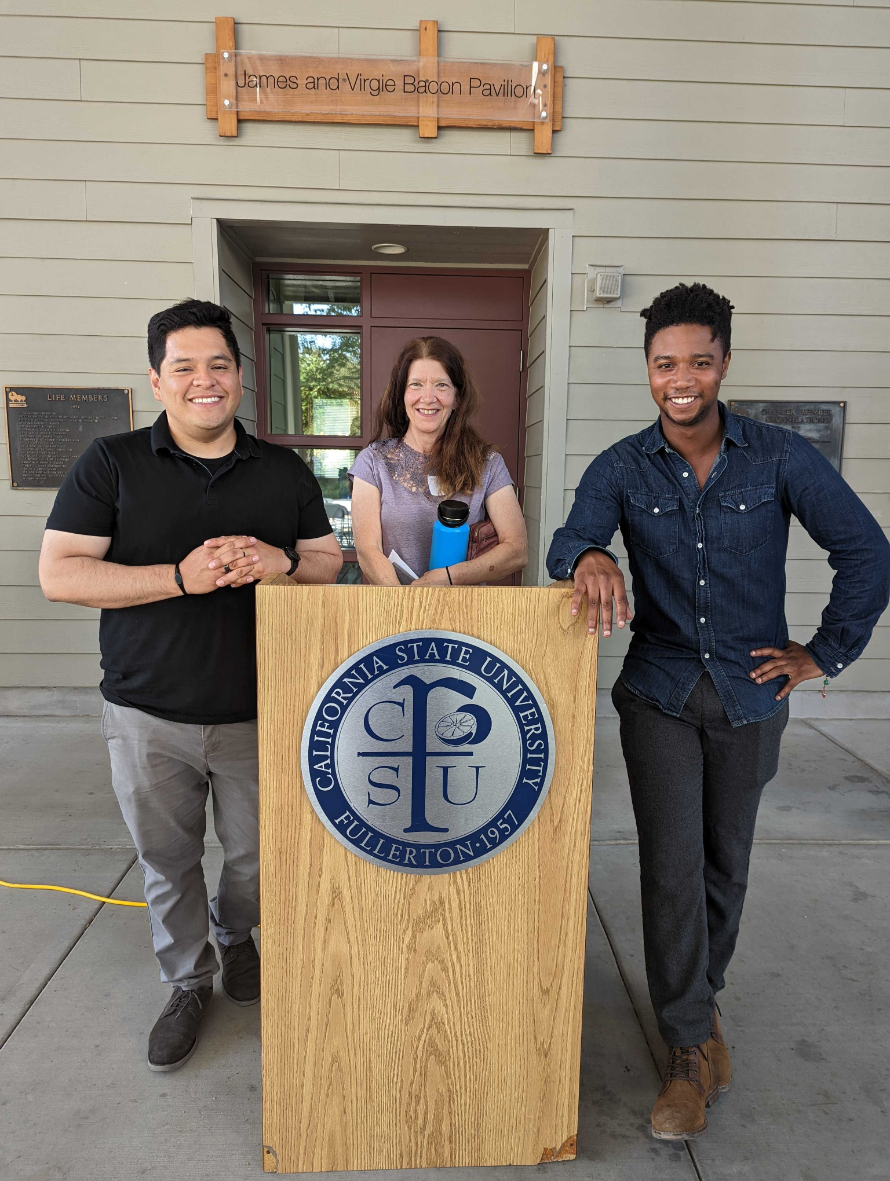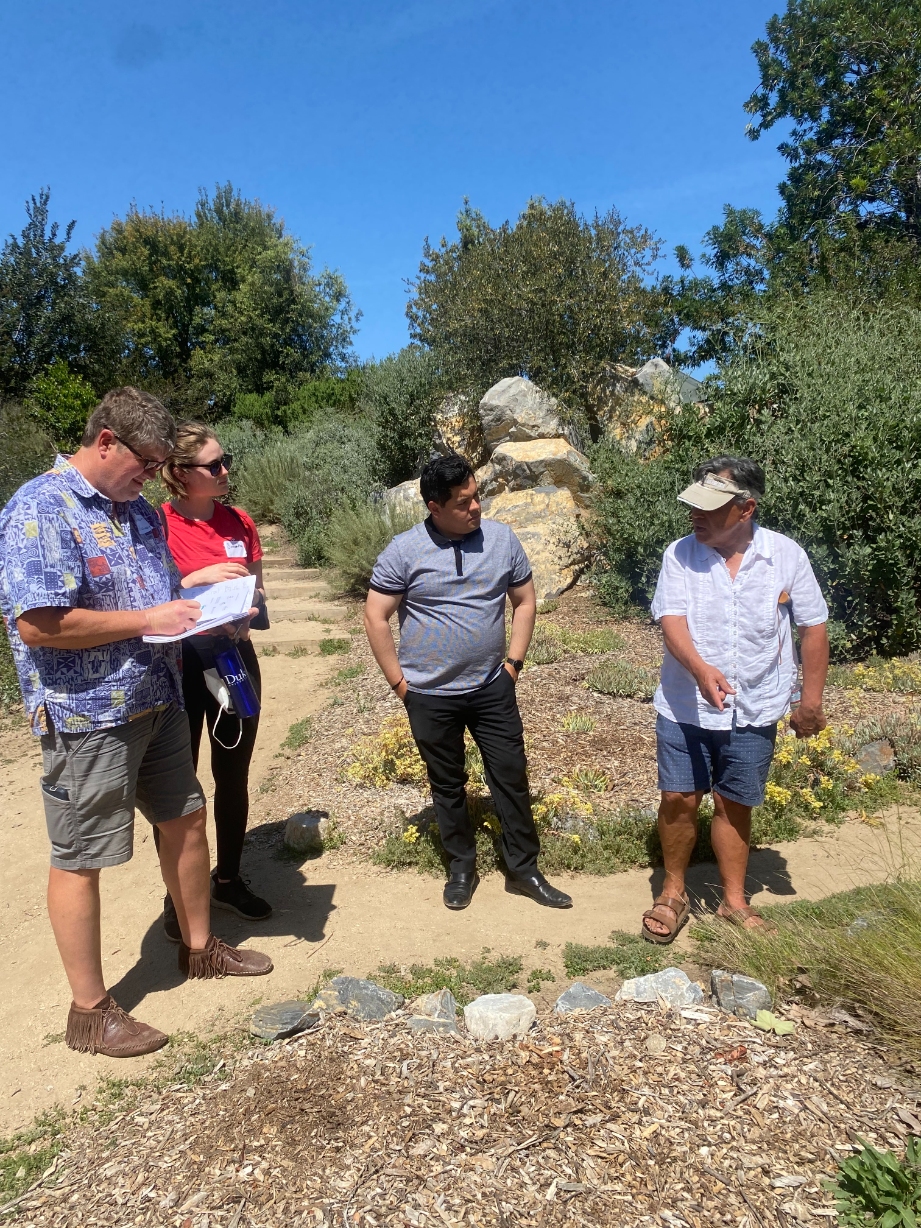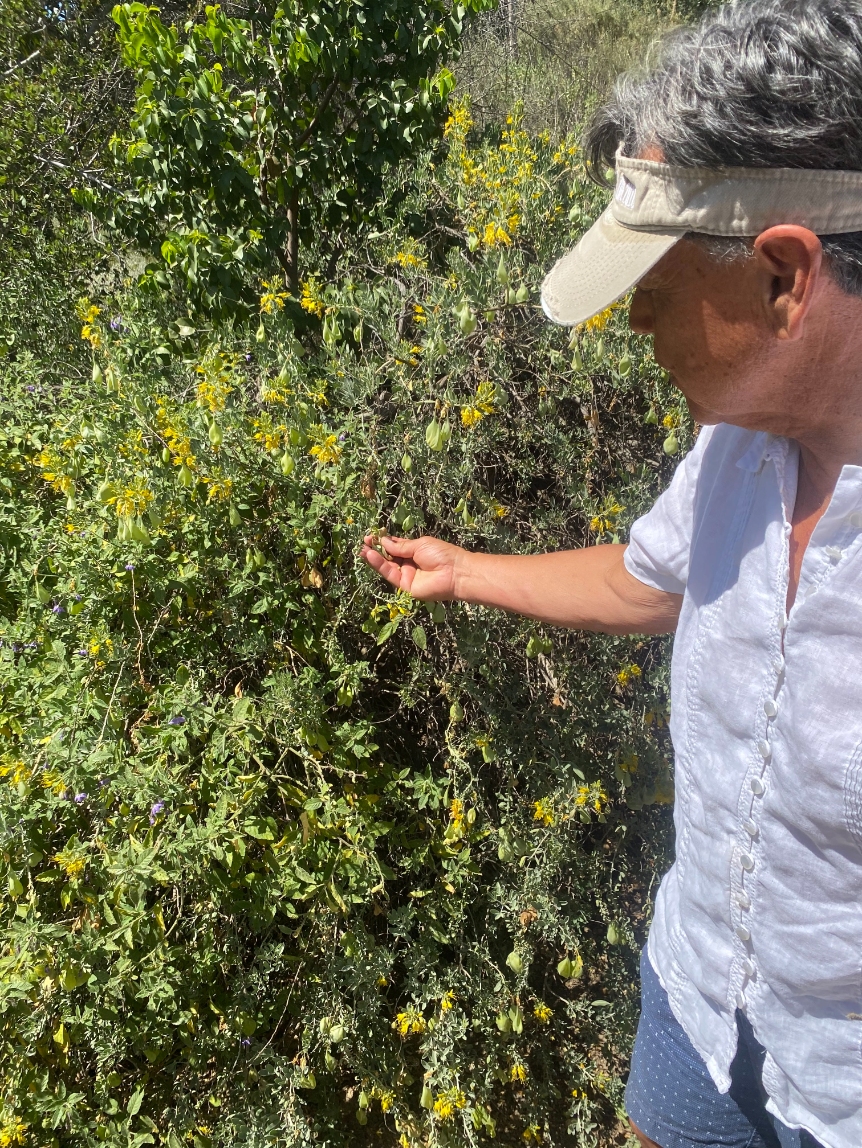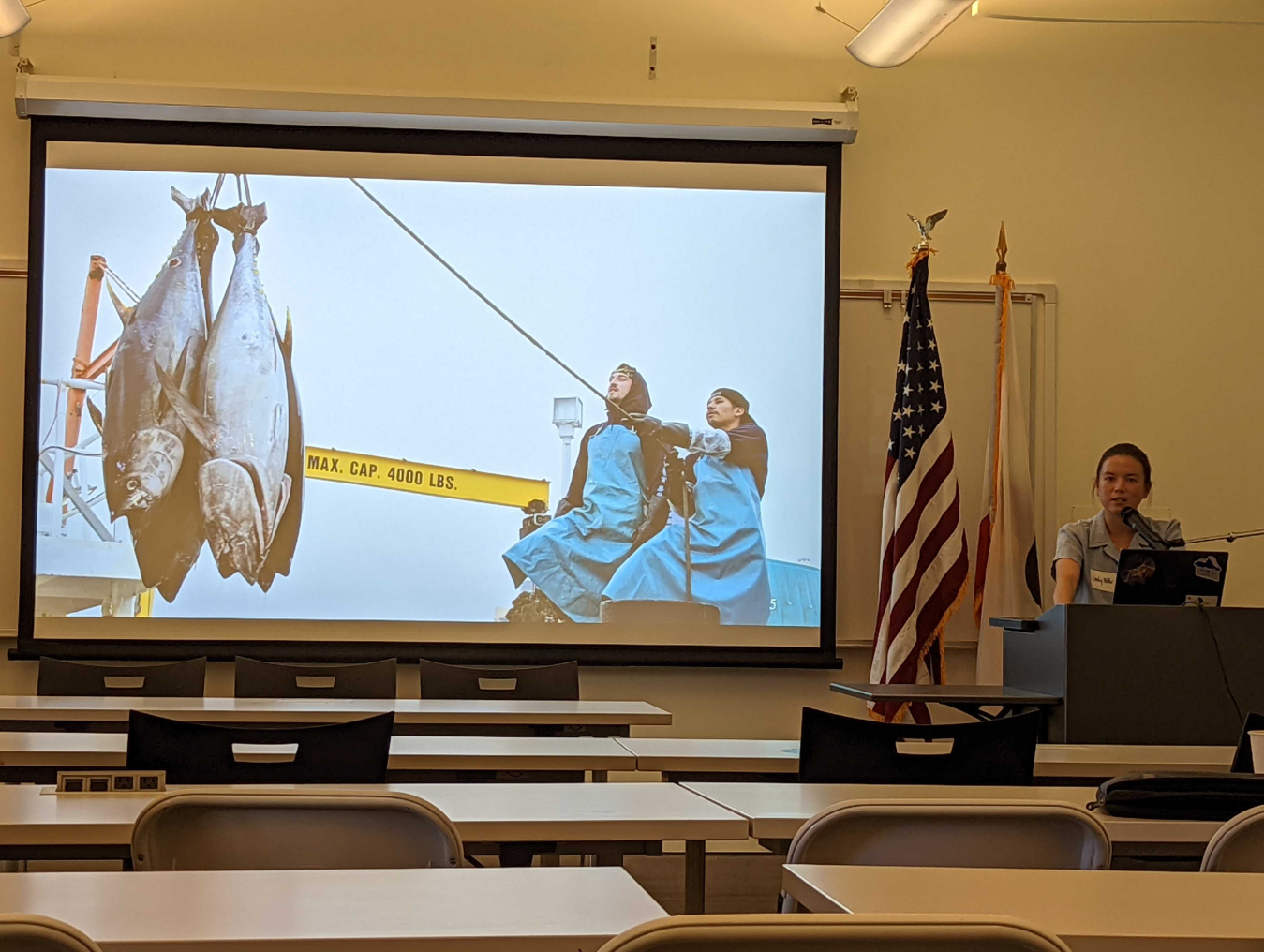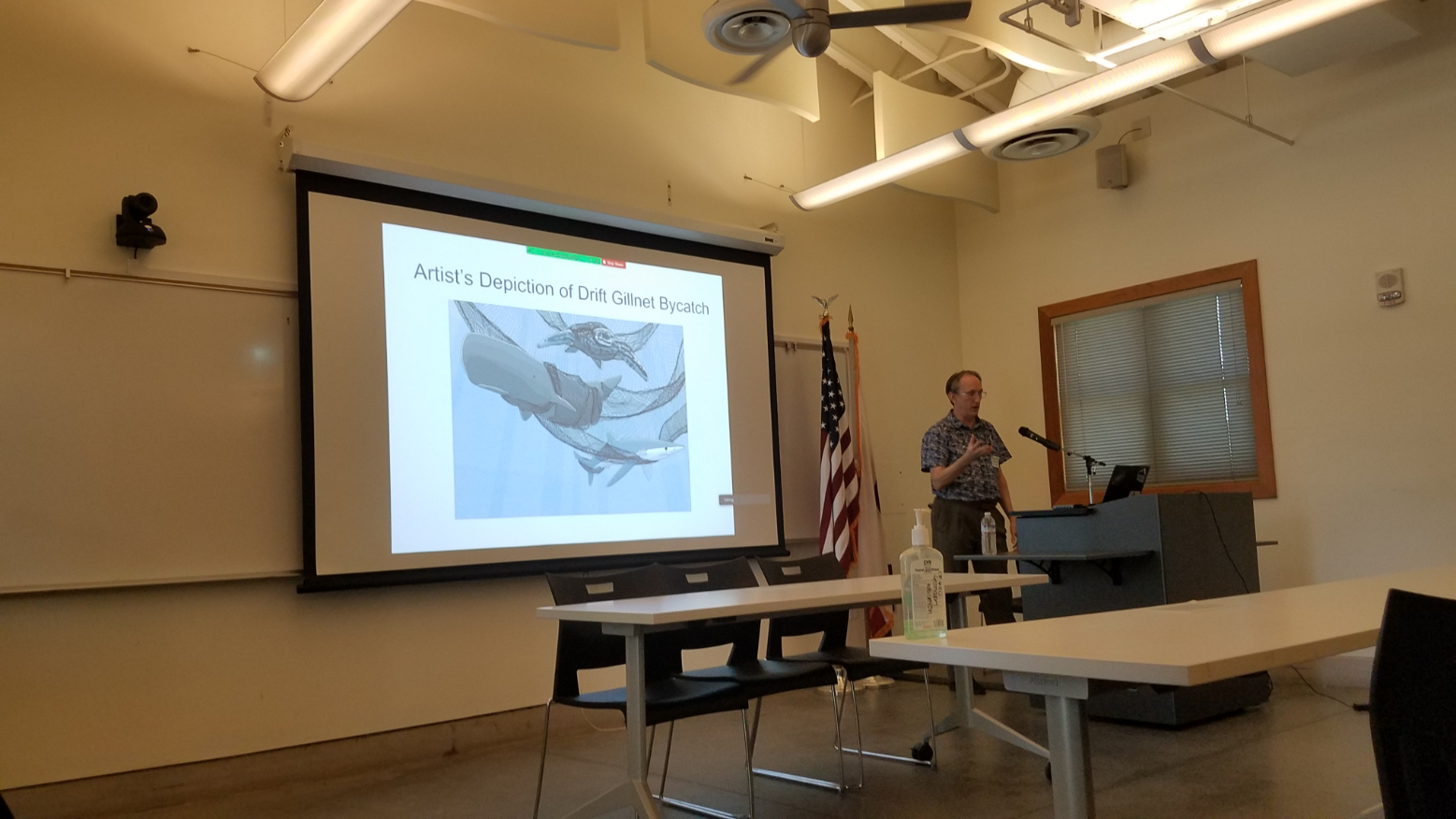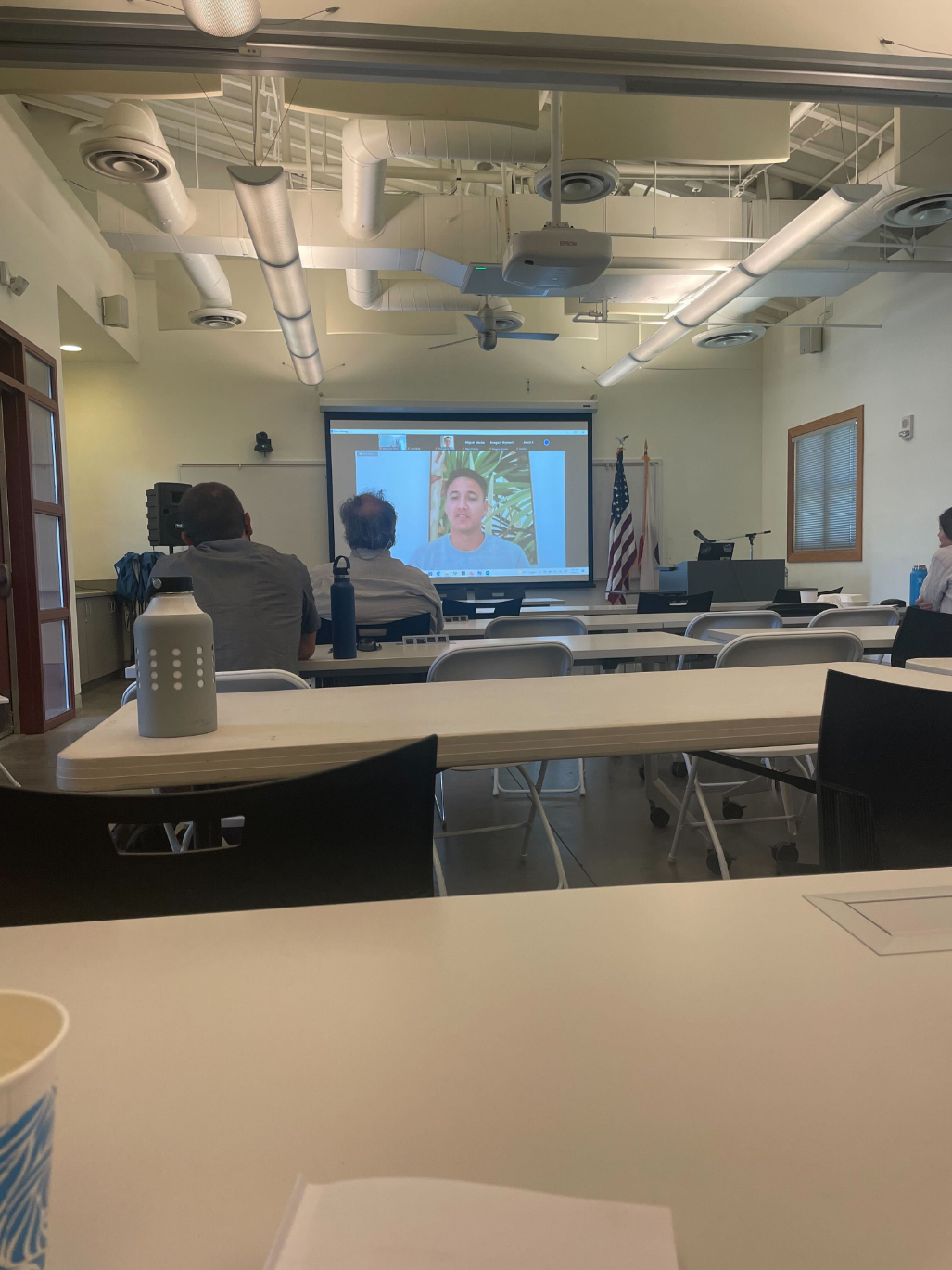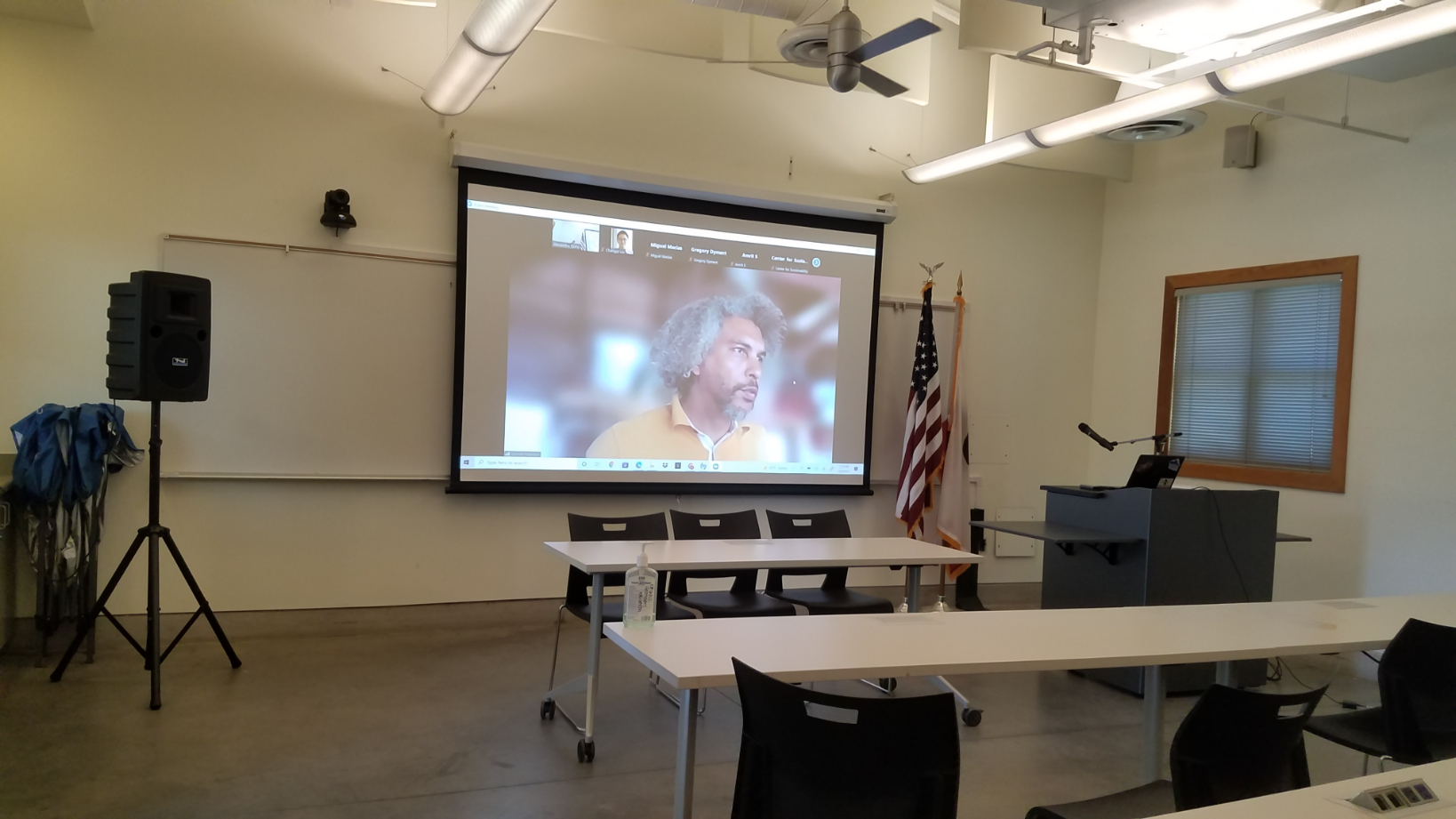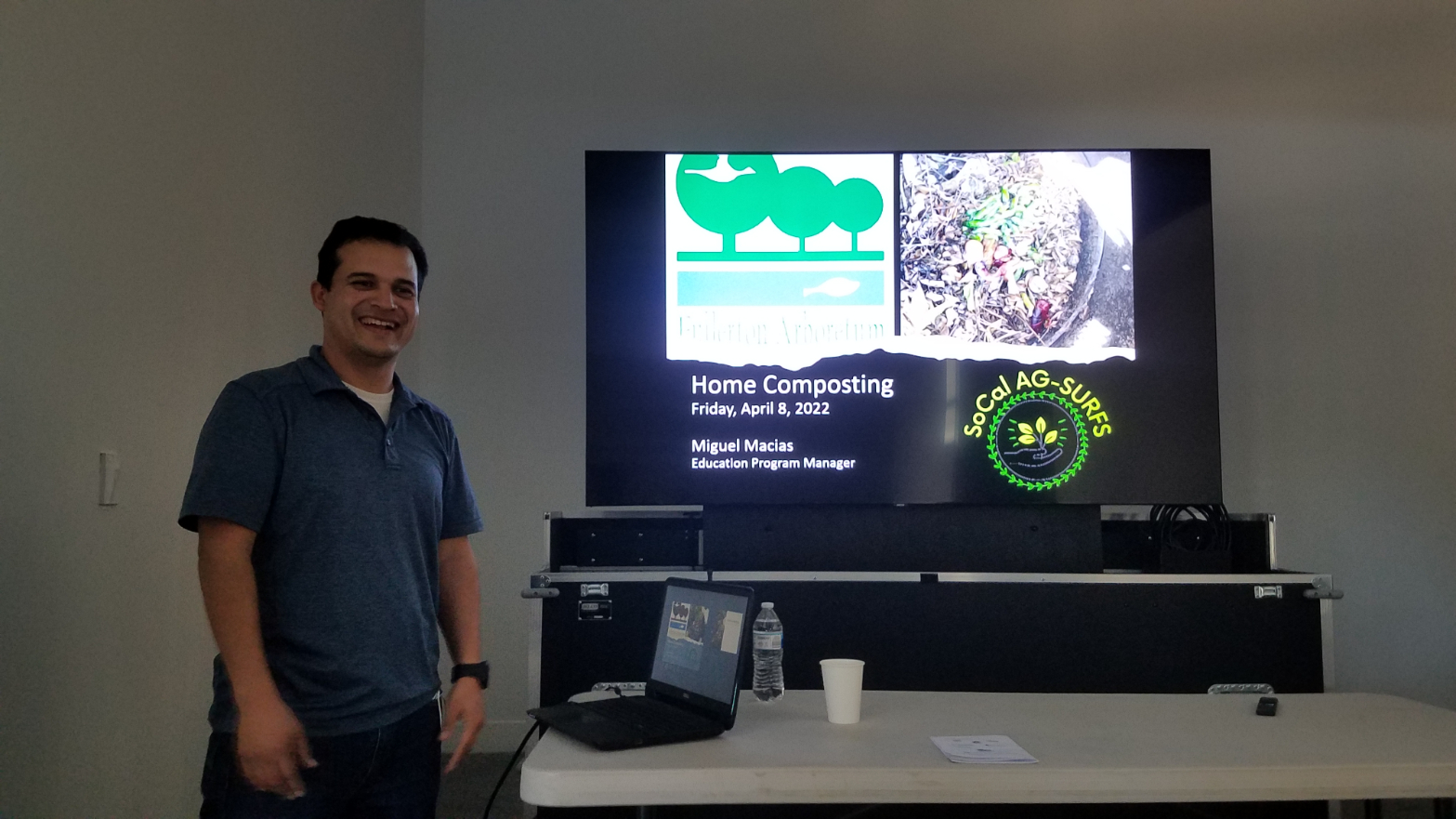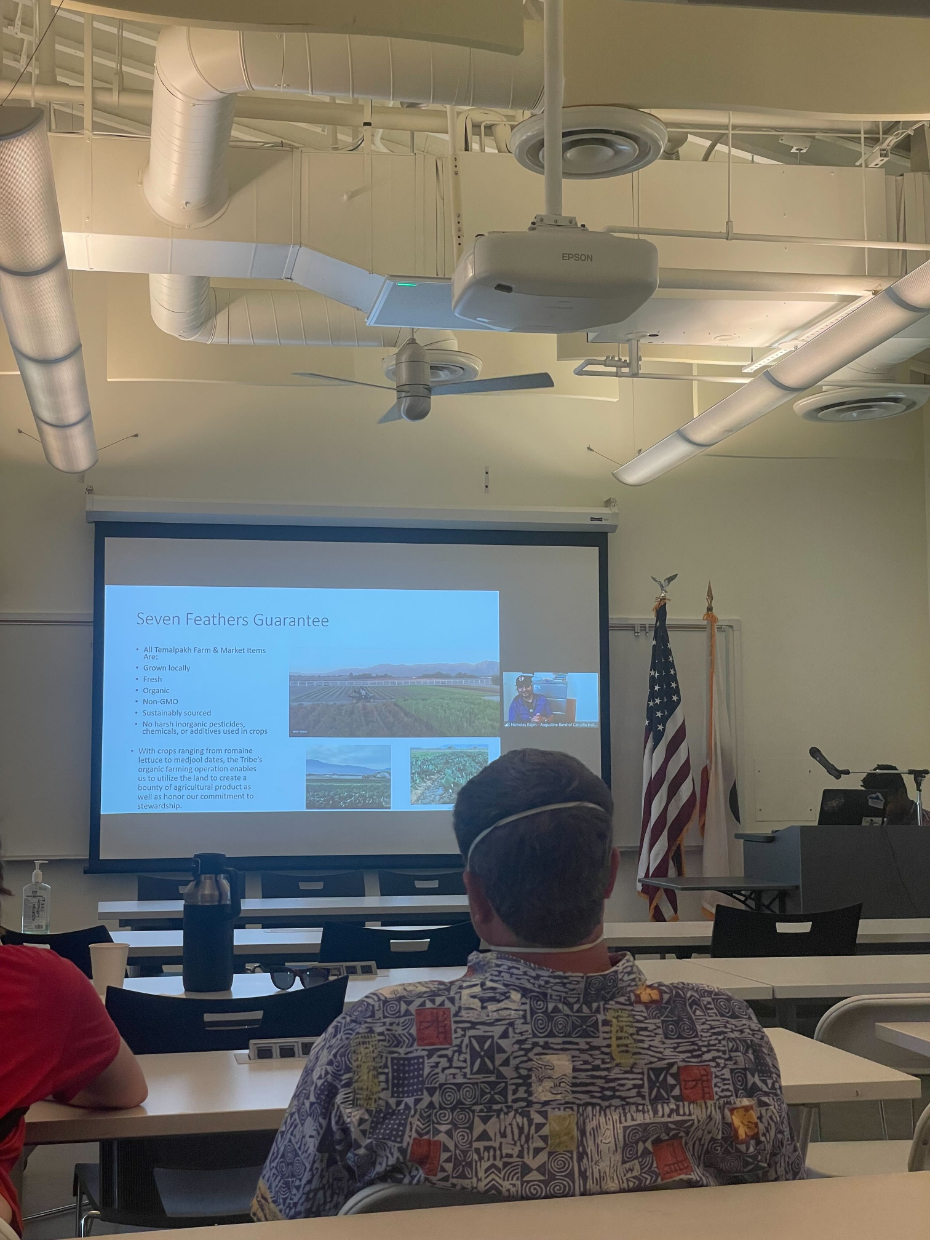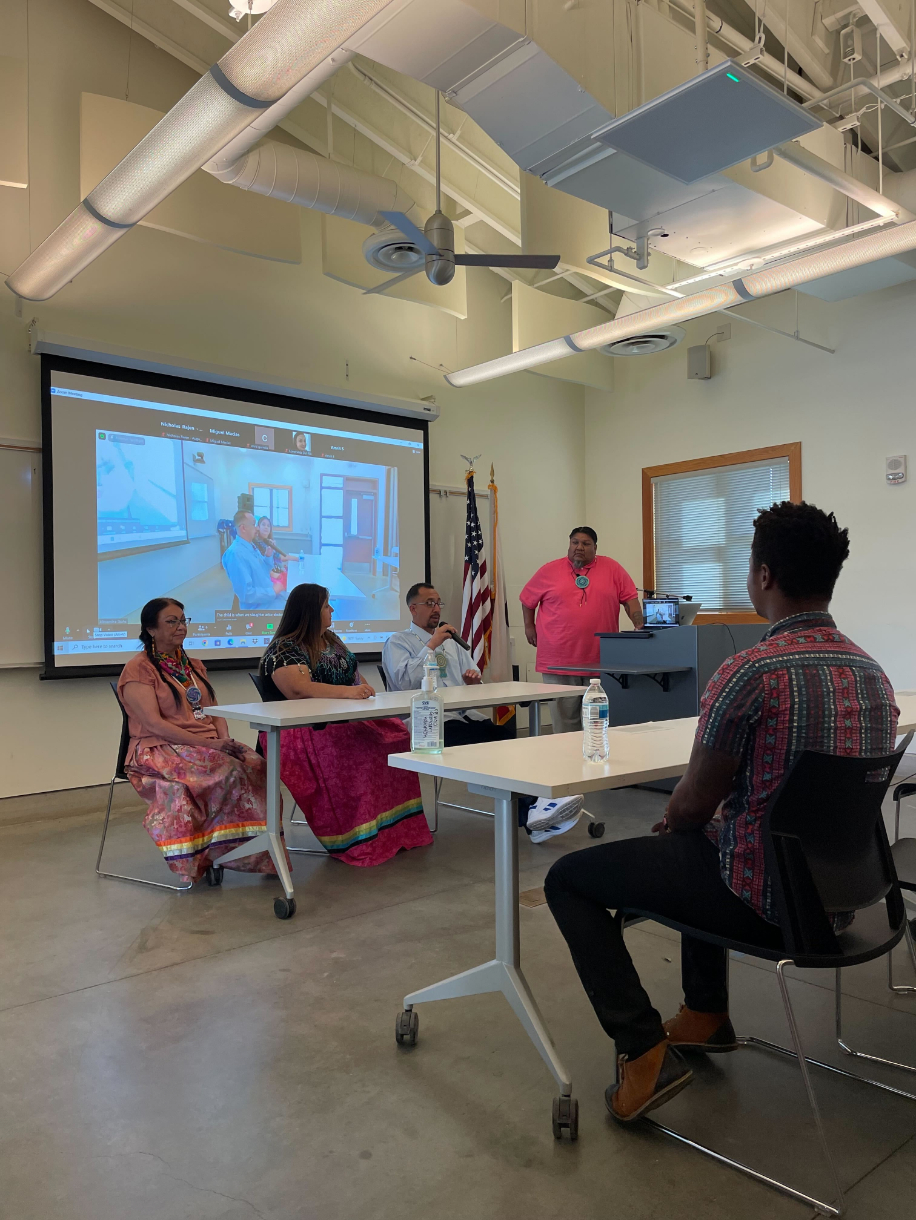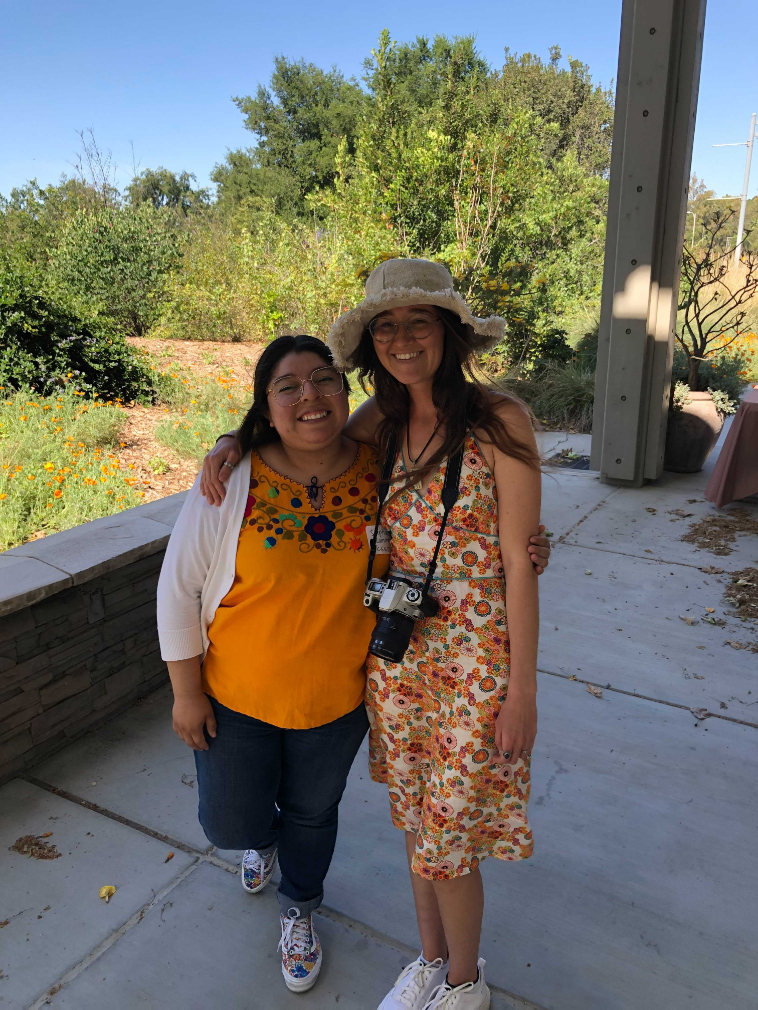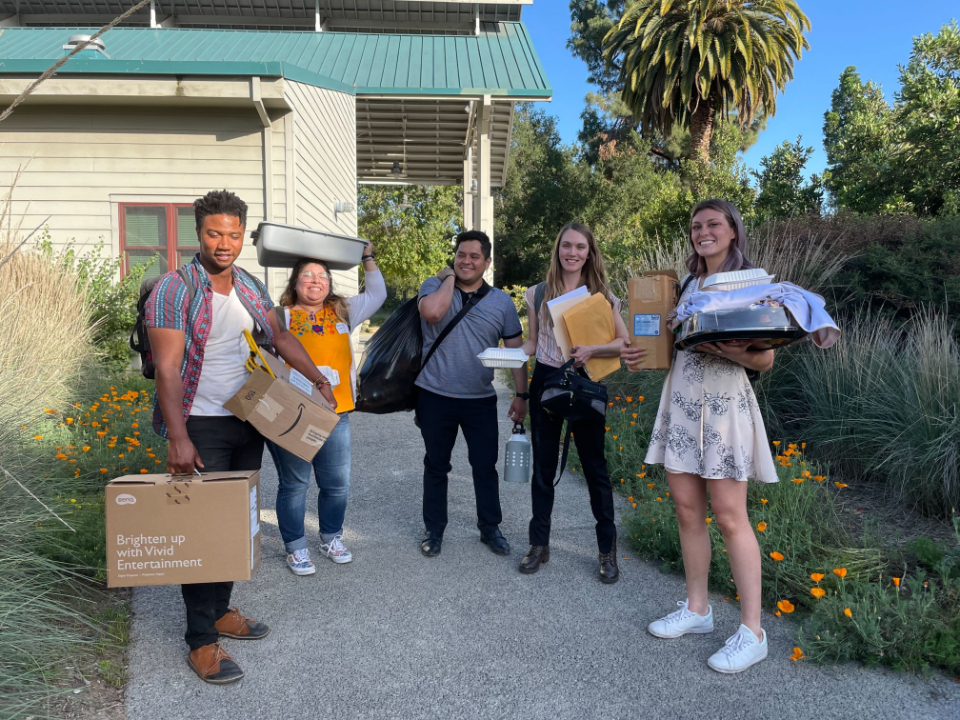Photos from the SoCal AG-SURFS Education and Research Conference
|
The land acknowledgement for the conference is given by Acjachemen Nation/ Juaneño Band of Mission Indians spritual leader, Adelia Sandoval and was assisted by Jorge Contreas, Student Services and Program Coordinator for the Native and Indigenous Population for the Office for the V.P. for Student Affairs at CSUF. |
Conference welcome given by Dean Sheryl Fontaine from the College of the Humanities and Social Sciences. |
|
Particpants of the conference listen to virtual Keynote Speaker, Rowen White, Seed Keeper and farmer from the Mohawk Community of Akwesasne. |
Abe Sanchez of the Chia Café Collective leads a cooking demo of native foods. Chia Café Collective is an organization dedicated to the revitalization of California's Indigenous foods. |
|
Roy of Monkey Business Café helps set up the coffee break for the conference. Monkey Business Café is a fully operational restuarant and catering enterprise that serves as work experience site for emancipating foster youth and other at-risk young people. |
Conference attendees stand outside of the Monkey Business Food Truck during lunch. |
|
Conference program coordinators, Michael Dean (L) and Alexandra Stohs (R), pose with panelists from the "Black Community Development through Urban Farming" Session. Jamiah Hargins, founder of Crop Swap LA, spoke along with Taylor Harrison, founder of Plant Plug LA. Dr. Natalie Novoa (center), CSUF African American studies professor, helped organize the session. Crop Swap LA's mission is to grow food in unused spaces, creating sustainable jobs and local, nutrient-rich food in communities affected most by food insecurity. Plant Plug LA, started in 2019, is the "first curbside nursery in South-Central LA." |
Changqi Li of The Sustainable, Optimized Urban and Latino-driven Agriculture (SOULA) Project at SDSU presents at the conference. The SOULA Project aims to provide innovative solutions to food insecurity by promoting interdisciplinary collaborations and indigenous science while fostering a pipeline of a diverese workforce in the field of food and agriculture. |
|
The "Geo-Spatial Agriculture" session, led by Professor Aaron Fox of Cal Poly Pomona, explores maps of food deserts, defined as low- income neighborhoods where residents do not have easy access to a supermarket and how they fail to represent the various social grass-roots efforts to build community food security. |
Professor Choi Chatterjee (L) of Cal State LA and her graduate students, Esmeralda Del Rio and Chris Gurrola, present an overview of their research project, "The Historical Database of Climate Adapted Agriculture". This database is centered on two main inventories: 1) A record of edible and medicinal plants that have thrived in the L.A. basin for the last 300 years; 2) A record of sustainable agricultural practices that have evolved in the Southern California region. |
|
Q&A with Dr. Teresa Lloro of Cal Poly Pomona and Dr. Grieg Guthey of CSU San Marcos with Dr. Aaron Fox of Cal Poly Pomona. Dr. Lloro gave a presentation on "Queer Feminist Food Justice Activism." |
Dr. Greig Guthey presents on CSU San Marcos' "Cougar Pantry", a student-led campus food pantry coordinating weekly food delivery to campus from a local non-profit that was founded in 2017. |
|
Opening speaker, BBC journalist and broadcaster, Dan Saladino gives a presentation on his new book, "Eating to Extinction: The World's Rarest Foods and Why We Need to Save Them." Mr. Saladino makes programs about food for BBC Radio 4 and BBC World Service and is the host for, "The Food Programme". |
Chef Stacey Whitney of CSUF's Project Rebound leads a virtual cooking demo on how to make healthy fried rice. Project Rebound is a program that supports the higher education and successful reintegration of formerly incarcerated indivduals wishing to enroll and suceed at California State Universities. |
|
Dr. Sara Johnson, director of "The Urban Agriculture Community-based Research Experience (U-ACRE) Project presents at the conference. U-ACRE offers hands-on community-based research experience for undergraduates, as well as community outreach in areas of food security, nutritional sufficiency, environemental justice, and sustainable agriculture.
|
Steve Anticona, CSUF Environmental Studies Master's Student and U-ACRE Fellow, presents his research on the bee colony in the apiary located at the Fullerton Arboretum during the U-ACRE session. |
|
U-ACRE students, Karisa Andert and Stephanie Ramirez, help out at the conference. |
Steve Anticona, U-ACRE fellow, poses with Dr. Sara Johsnon, director of U-ACRE, and Michael Dean, U-ACRE fellow and program coordinator for the conference. |
|
Abe Sanchez of the Chia Café Collective gives a tour of the Fullerton Arboretum to conference attendees. |
During the tour of the Fullerton Arboretum, Abe Sanchez discusess the background and history of plants that are local to Southern California and their use in local indigenous communities. |
|
Emily Miller, project manager of the "Fishful Futures" project presents during the "Sustainable Seafood" session. The Fishful Futures projects is an intiative launched by a Saltonstall-Kennedy Grant that critically examined the San Diego seafood supply chain for waste of edible seafood happening upstream of consumers. |
Stephen Stohs, NOAA Fisheries Economist, presents on transboundary endagered species conversation fisheries during the "Sustainable Seafood" session. |
|
Dallas Abel of the Kai Ika Project based in New Zealand discuess Kai Ika's attempts to redistribute fish heads, frames and offal that were previously going to waste back to the local community. |
NOAA Fisheries economist, Derrick Robinson, gives a presentation on aquaculture for the "Sustainable Seafood" session. |
|
Miguel Macias, education director at the Fullerton Arboretum, leads a workshop on home composting. |
Nicholas Rajen, member of the Augustine Band of Cahuilla Indians, gives a presentation on on Temalpakh Farm in the Coachella Valley. Temalpakh Farms operates an organic farm and farmer's market in the Augustine reservation, once the location of the village site of Temal Waquish, now surrounded by the city of Coachella. |
|
Kyndall Noah and Teri Red Owl, members of the Owens Valley Paiute and members of the Owens Valley Indian Water Commision, lead a Q&A after a film screening of "Paya: The Water Story of the Paiute". The film documents the history of the Owens Valley Paiute who constructed and managed sixty square miles of intricate irrigation systems for millenia, long before Los Angeles diverted the Owens River through the Los Angeles Aqueduct, 220 miles across the Mojave Desert. |
A dove spotted during the conference in the Fullerton Arboretum. |
|
U-ACRE students, Stephanie Ramirez and Avalon Andrews, help out at the conference. |
U-ACRE students, Stephanie Ramirez, Steve Anticona and Karisa Andert, along with conference program coordinators, Michael Dean and Alexandra Stohs, carry out supplies at the end of the conference. |
